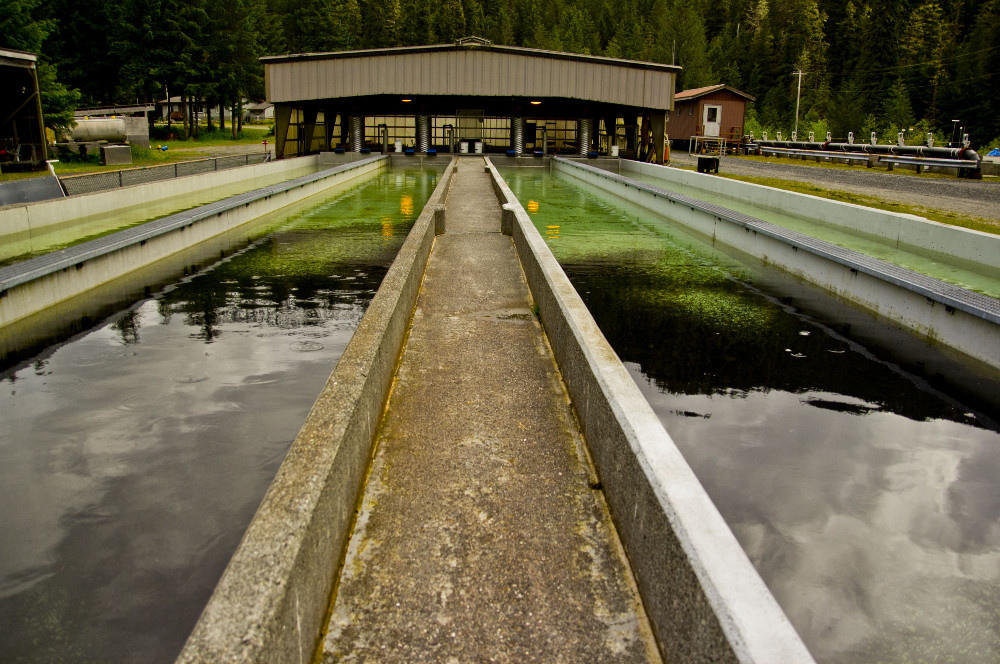
The future is a little brighter for the money needed to pay for operations at a state owned, non-profit run hatchery at Blind Slough on Mitkof Island south of Petersburg. Crystal Lake Hatchery lost a portion of its state funding last year. However, hatchery managers are hoping that will be restored with additional funding to fill in what they hope is only a short-term shortfall.
A state surcharge on sportfishing licenses ended in 2020. It funded construction of hatcheries in Anchorage and Fairbanks along with annual payments for king salmon production at Crystal Lake and another hatchery in Juneau. The $200,000 is only a portion of the money that pays for operations at Blind Slough, run by the Ketchikan-based Southern Southeast Regional Aquaculture Association, known by its acronym, SSRAA.
SSRAA general manager David Landis told the Petersburg assembly this month that the state has committed to continuing another portion of portion of the hatchery’s cost, which comes from a mix of federal and state sport fishing money.
“We have gradually since August received more and more positive messages from the governor’s office, the Department of Fish and Game, commissioner’s office, through the sport fish division that that funding is more secure than we were initially fearful that it might be in August and September of last year,” Landis told the assembly.
Landis explained that SSRAA also pays about 600,000 dollars of Crystal Lake operations. Normally the hatchery organization funds the bulk of its programs through cost recovery fishing, or catching and selling some of the returning salmon. Two years of poor returns has SSRAA borrowing to cover its costs and looking for ways to trim its budget.
“That’s not a healthy situation, that’s not a sustainable situation but every dollar we spend really is a dollar that we’re borrowing,” Landis said. “So that’s a pretty tough situation to be in and we just really cannot afford to take on additional costs at this time. Again this comes at a very inopportune time.”
It’s a tough time for the state budget as well. However, the Dunleavy administration last year proposed bills to continue the sport fishing license surcharge. They didn’t pass in a COVID shortened session. SSRAA’s hopeful they’ll be reintroduced in the session that starts this month. If that legislation does pass this year, it will still leave SSRAA with a one-year loss of that 200,000 dollars. SSRAA’s board of directors in December voted to revisit Crystal Lake production in March and could reduce releases that are mainly caught by the sport fishing fleet.
Landis said SSRAA did not plan to change chinook releases at Blind Slough for the foreseeable future. The release of kings at City Creek in Frederick Sound and coho release at Blind Slough would be the first on the chopping block if the organization needs to cut.
“We think it’s very important and I’m sure you do too to have a continued enhancement program at Crystal Lake and again we wish this were coming at a better time when we had a lot more flexibility in terms of what we are able to do internally to rearrange and back fill and make things work like we are usually able to,” he said.
Landis said SSRAA would be trying multiple avenues to fill that 200,000 dollar funding gap. If the shortfall is just for one year, short term solutions could be a state appropriation or funding associated with the Pacific Salmon Treaty.
Petersburg’s assembly talked about sending a letter in support of hatchery funding to state elected officials.









